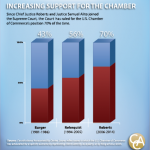SCOTUS
The 5-3 Supreme Court decision in Whole Woman's Health v. Hellerstedt last week was a welcome step for women's health, but resulted in the removal of only some of the barriers many US women still face in accessing abortion services. At issue in the case was Texas law HB 2, which required abortion facilities to meet the standards of ambulatory surgical centers and providers to have admitting privileges at a hospital within 30 miles of a facility. In the opinion of the Court, Justice Breyer explains "neither of these provisions offers medical benefits sufficient to justify the burdens upon…
A few of the recent pieces I've liked:
Jay Hancock of Kaiser Health News at NPR: In Freddie Gray's Baltimore, The Best Medical Care Is Nearby But Elusive
Jessica Mason Pieklo at RH Reality Check: With No Scalia, What’s Next for the Supreme Court?
David Heath at the Center for Public Integrity: Meet the ‘rented white coats’ who defend toxic chemicals
Maryn McKenna at Germination: Hidden Epidemic of Fatal Infections Linked to Heart Surgeries
David Roberts at Vox: The decisions we make about climate change today will reverberate for millennia. No pressure.
The Constitutional Accountability Center has released it's annual report The Corporate Court.
...Let’s begin with the numbers. This Term, the Chamber was involved in 17 cases overall—directly representing one of its member companies in Canning, litigating as a party in UARG, and filing amicus briefs in 15 other cases. The Chamber’s 17 cases represent just under a quarter of the total cases set down for argument this Term.
All told, the Chamber racked up a record of 11 wins and 5 losses—or a 69% winning percentage. (One of its cases—Mt. Holly v. Mt. Holly Gardens Citizens in Action—…
The Supreme Court's decisions on marriage equality and the Voting Rights Act got a lot of media attention last week, but several of the Court's other decisions also have implications for public health -- and they came down on the side of employers, real-estate developers, and drug manufacturers.
In a Washington Post op-ed, Georgetown University law professor David Cole warns, "the underlying theme of the Supreme Court’s term was not the recognition of rights, but their dilution." He points to two cases involving employment discrimination:
In a pair of less-noticed decisions released the…
From Mercury News:
In a ruling that assures further legal battles, the high court found that backers of Proposition 8 did not have the legal right to defend the voter-approved gay marriage ban in place of the governor and attorney general, who have refused to press appeals of a federal judge's 2010 ruling finding the law unconstitutional.
It was a 5-4 decision, usual suspects.
Reminder: Who is on the Supreme Court matters.
Reminder: Who is in the White House matters to who is on the Supreme Court.
Reminder: Which party controls the Senate matters to the ability of whomever is in the White…
The Supreme Court of the United States has truck down the so-called "Defense of Marriage Act" as unconstitutional. It was a 5-4 decision. A ruling on California Prop 8 is expected soon.
From NPR:
Section 3 of the law defines marriage as "a legal union between one man and one woman as husband and wife" and a spouse as "a person of the opposite sex who is a husband or a wife." That provision had been struck down by eight lower courts before the Supreme Court's 5-4 ruling in United States v. Windsor.
This decision means that legally married same-sex couples are now entitled to the same…
I'm pleased the Supreme Court has decided to reject the idea of patenting genes, as such case law would be restrictive to scientific discovery and also just feels fundamentally icky. From a legal perspective, as far as I understand patent law (not a lawyer here), it also seemed to fail on the more basic level of novelty and obviousness. The methods used to discover such genes were not what was invented. And one could conceive of "gene trolls" that would seek out gene aberrations and sit on them, just like other patent trolls, waiting for a payout and hindering scientific and medical…
In looking back at the year 2012, one of the most momentous occasions was the Supreme Court decision on the Affordable Care Act. Here are a few of our posts on the topic:
Broccoli, Coercion, and Severability: Three days of SCOTUS arguments on the Affordable Care Act: Liz summarized the legal issues the Court was considering: the constitutionality of the law's individual mandate, whether the federal government could force states to expand their Medicaid programs as a condition of continuing to participate in Medicaid, and whether the law as a whole could stand if a single provision were to be…
by Kim Krisberg
Broccoli. A nutritious green veggie of the cabbage family? Or a symbol of the federal government's over-reaching power grab? Like most things in life, it all depends on your perspective.
I've been thinking about that word -- broccoli -- since last month's Supreme Court hearings on the constitutionality of provisions within the Affordable Care Act (ACA). Specifically, I've been pondering this comment from Justice Antonin Scalia during arguments on the ACA's individual insurance mandate:
SCALIA: . . . could you define the market -- everybody has to buy food sooner or later, so…
Unless they've deviated from their normal procedure, the Supreme Court justices have now decided on how they'll rule on the Affordable Care Act - but, as the Washington Post's Robert Barnes points out, we'll have to wait until late June to hear their verdict. In the meantime, this is a good opportunity to recap the key issues in the case and highlight some of the more insightful commentary about them.
The first issue on which the Court heard arguments was whether it could rule on this case to begin with, since it involves a tax on people who don't have health insurance coverage (or a hardship…


